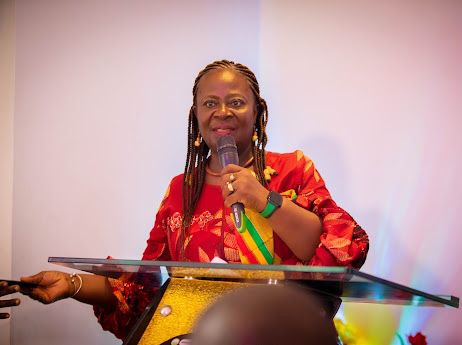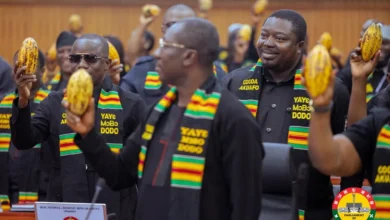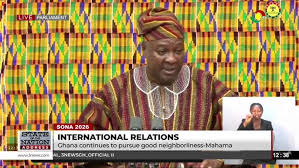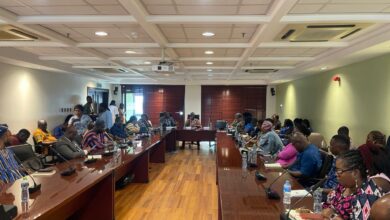Mission Africa Inc.’s Vice President challenges women to go into politics
Mission Africa Inc.’s Vice President challenges women to go into politics

The Vice President of Mission Africa Incorporated, Dr. Mrs. Akosuah Sumney has challenged African women to go into politics.
As the clock ticks down to 2030, the deadline for the Sustainable Development Goals (SDGs), African countries are still far from achieving women’s “equal and effective” participation in political decision-making.
According to the first Women’s Political Participation (WPP) Africa Barometer 2021, women constitute 24% of the 12,113 parliamentarians in Africa – 25% in the lower houses, and 20% in the upper houses of parliament. While local government is often hailed as a training ground for women in politics, women constitute a mere 21% of councilors in the 19 countries for which complete data could be obtained.

to this end, Dr. Mrs. Akosuah Sumney is urging young African women not to see politics as a preserve of men but rather see it as an avenue for them to go and make positive impactful decisions.
Speaking on the topic “Women Empowerment” at the 19th edition of the annual African Union (AU) Day Prayer Conference organised by Mission Africa Incorporated, in collaboration with the Parliament of Ghana and Ghana Broadcast Corporation held in Parliament House Accra, threw the challenge.
According to Mrs. Sumney, the African continent has long committed to improving gender equality in political decision making as shown through the Maputo Protocol that offers specific provisions on women’s political participation. Saying at a global level, Sustainable Development Goal Five on gender equality provides for the increase and meaningful participation of women in political decision-making.
This global agenda to be achieved by 2030 will remain a dream if Africa does not change its systems, practices, and policies to ensure that more women sit on the political decision-making table. Mrs. Sumney warned.
The continent we want is one where women have equal opportunities to participate in all levels of political decision-making without hindrance, without fear, and with the full support of men who have dominated the political decision-making space. She reiterated.

The Vice President of Mission Africa Incorporated, thus called on African governments to put in place special measures to correct both human and historical imbalances that hinder women’s involvement in politics.
Mrs. Sumney explained that the time has come for African leaders to cultivate enabling ground from the local government level to the cabinet-level for women to participate in politics.
A key arena of the political structure is the political party. Here too, we are presented with the deeply troubling picture of only 12% of women represented at political party top leadership positions across the 54 African countries.
“Let me state without equivocation that without a change of mindset and political parties’ contented effort to rope in more women at this level, there will be fewer possibilities of women being elected in political decision-making positions.
It is time that the worth of a woman is counted beyond so-called ‘traditional’ roles, to the meaningful contribution towards societal development.” She added.
According to her, the struggle for African women to be placed at the head of the table is far from over since progress made by women on the continent is incremental.

She hinted that women outside Africa are more represented in political decision-making across the globe and African leadership and governance must take into consideration the value of women in nation-building.
Dr. Akosuah Sumney thus urges African women to enter politics and contribute to the movement of change in Africa. Saying it is customary to assign women to “soft issue” portfolios like social affairs, children, and family.
She has, therefore, challenged nations to take courageous actions to significantly expand the representation of women in decision-making.
To achieve the UN’s Sustainable Development Goals (SDGs), African leadership must empower both women and girls. Governments must seek to ingrain gender parity in their legal and constitutional systems. They must make sure that all laws are strictly obeyed, as well as eradicate all forms of violence against women, and make sure that girls receive quality and equal education. Dr. Akosuah echoed.




